There are times in life where everyone just reaches a fork in the road and that next step truly defines what will become of their future. Sometimes in music, there’s fame, success and creative fulfillment ahead and other times there are opportunities forever lost for something that might have been truly great.
Loudwire has teamed up with Ultimate Classic Rock and Diffuser.fm to revisit some of these key moments in rock that could have altered the music landscape as we know it if the other path was taken.
SLASH AUDITIONS FOR POISON – MOMENTS THAT NEARLY DESTROYED ROCK
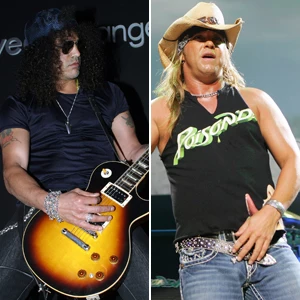
Hollywood was the place to be if you were a rocker looking to make it in the mid ’80s. But not long before we were all welcomed to the jungle, Slashauditioned for the Bret Michaels-led Poison. In a 2010 interview with Classic Rock Revisited, Slash revealed that he had decided to quit the pre-Guns N’ Roses band Hollywood Rose and was referred to Poison by their exiting guitarist at the time.
Slash says he made it to the final two, but knew it wasn’t going to work when he was asked about wearing makeup. Poison ended up offering the job to C.C. Deville. Had Slash been chosen for Poison, would Guns N’ Roses have ever reached the pinnacle without him? And while successful in their own right, would Poison have become the iconic act that GN’R went on to be?
MOTLEY CRUE’S NIKKI SIXX PRONOUNCED LEGALLY DEAD – MOMENTS THAT NEARLY DESTROYED ROCK
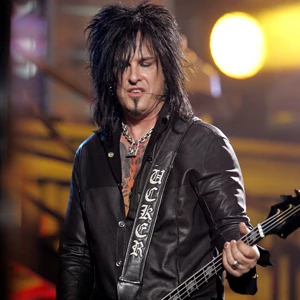
Motley Crue‘s ’80s excess is legendary and it really peaked out on Dec. 23, 1987 when the band’s bassist Nikki Sixx was declared legally dead of an overdose before he was eventually revived. While Motley Crue had been highly successful prior to Sixx’s overdose, it should be noted that arguably the band’s most successful release, ‘Dr. Feelgood,’ came after the incident.
Sixx has also gone on to form Sixx: A.M, has become a popular radio host, an author and an accomplished photographer in the years since his almost death. Sixx stated last December on the25th anniversary of his near fatal overdose, “I am extremely grateful to be able to look back over these last 25 years and have all the memories that would of otherwise gone down in flames.”
BLACK SABBATH’S TONY IOMMI LOSES TIPS OF FINGERS – MOMENTS THAT NEARLY DESTROYED ROCK
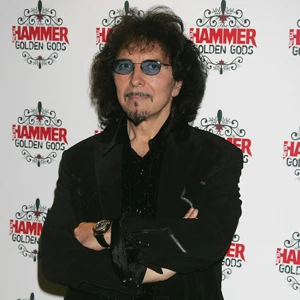
Black Sabbath‘s Tony Iommi is a godfather of heavy metal, but his career was almost cut short. As a 17-year-old, Iommi was involved in an industrial accident that resulted in the loss off the tips of middle and ring fingers on his right hand.
As a result, Iommi adjusted his approach to guitar, with down-tuned strings to ease his playing. The end result created a signature sound for Black Sabbath. What could have been a tragic accident in some ways turned out to be a blessing for heavy metal music, but had the accident been worse, heavy metal music as we know it may have never existed.
JOHN FRUSCIANTE EXITS RED HOT CHILI PEPPERS – MOMENTS THAT NEARLY DESTROYED ROCK
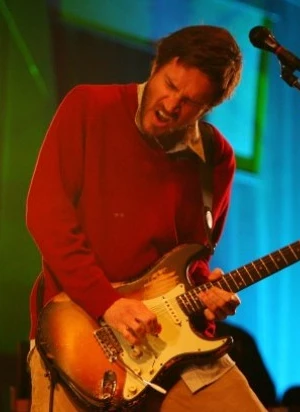
Following the tragic death of Hillel Slovak, the Red Hot Chili Peppers recruited John Frusciante as their new guitarist. Frusciante would prove to be an integral member of the band, with his contributions playing a big role in their classic albums ‘Mother’s Milk’ and ‘Blood Sugar Sex Magik.’
However, Frusciante quit RHCP after ‘Blood Sugar Sex Magik,’ and the band recorded the somewhat disappointing album ‘One Hot Minute’ with Dave Navarro on guitar. Thankfully, Frusciante rejoined the group in 1998 and RHCP followed with the acclaimed disc ‘Californication,’ as well as the albums ‘By the Way’ and ‘Stadium Arcadium.’
While Frusciante has since left the band again, there’s no telling what direction RHCP would have headed or if they would have continued had he not joined them that second time in the late ’90s.
TOOL’S MAYNARD JAMES KEENAN PURSUES INTERIOR DESIGN – MOMENTS THAT NEARLY DESTROYED ROCK
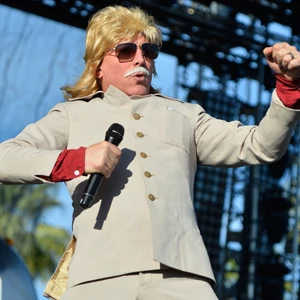
There are many rockers who move to California to get discovered, but Tool frontman Maynard James Keenan was more intrigued with pursuing a career in interior design and set decoration upon arriving in Los Angeles. The future frontman attended the Kendall College of Art and Design and took odd jobs like providing feng shui for a pet store.
Fortunately, he would later meet guitarist Adam Jones at a party and they bonded, eventually putting together the beginnings of what would become Tool. While Keenan didn’t end up in interior design, he is still able to use his creativity in performing as a member of such bands as Pusciferand A Perfect Circle as well as Tool. Interior design’s loss is hard rock’s gain, tenfold!
PINK FLOYD ALMOST RAP – MOMENTS THAT NEARLY DESTROYED ROCK
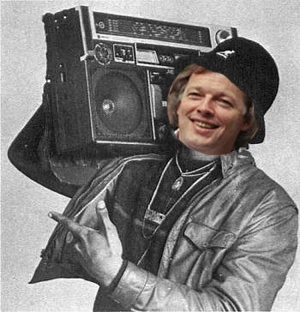 So, what do a legendary British progressive rock band do for a second act when they’re recording their first album after the loss of one of their most important members? They turn to rap, obviously — at least, that’s what producer Bob Ezrin suggested to Pink Floyd when they were recording ‘A Momentary Lapse of Reason.’
So, what do a legendary British progressive rock band do for a second act when they’re recording their first album after the loss of one of their most important members? They turn to rap, obviously — at least, that’s what producer Bob Ezrin suggested to Pink Floyd when they were recording ‘A Momentary Lapse of Reason.’
“I brought some in to David Gilmour‘s thing going, ‘Boy, I think this stuff with a rock beat would be awesome,’” he recalls.
Fortunately, Gilmour was having none of the credibility-destroying idea. “He said, ‘Oh my God, that would be terrible,’” Ezrin says, laughing. “He couldn’t believe it. He hated the idea.”
KEITH RICHARDS ALMOST LOSES ‘SATISFACTION’ – MOMENTS THAT NEARLY DESTROYED ROCK
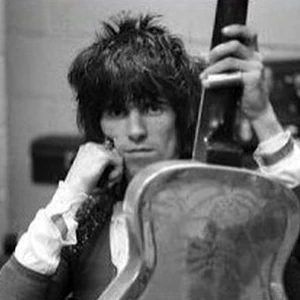 In 1965 the Rolling Stones scored their breakthrough hit, ‘Satisfaction’ — but guitarist Keith Richards almost didn’t finish the song. He came up with the main riff during the early morning hours at a motel in Florida while on tour, putting it down on tape before lapsing back into sleep.
In 1965 the Rolling Stones scored their breakthrough hit, ‘Satisfaction’ — but guitarist Keith Richards almost didn’t finish the song. He came up with the main riff during the early morning hours at a motel in Florida while on tour, putting it down on tape before lapsing back into sleep.
When Richards woke, there was only a bit of the riff on tape, followed by 45 minutes of snoring, heclaims. But it was enough for him to show it to Mick Jagger, who recognized its potential and swung into action, finishing the song. Had Richards not taken a moment to record the bit — or forgotten and not gone back to it — the Stones might very well have missed out on their signature song. Ironically, Richards himself didn’t care for it at first.
JOHN LENNON SAYS THE BEATLES ARE ‘MORE POPULAR THAN JESUS’ – MOMENTS THAT NEARLY DESTROYED ROCK
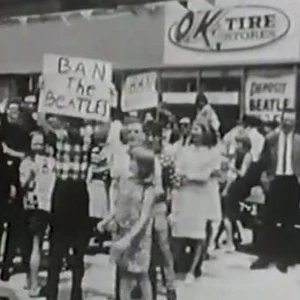 In 1966, John Lennon, in an interview with the London Evening Standard, spoke about his belief that Christianity was dying out, saying of theBeatles, “We’re more popular than Jesus now.”
In 1966, John Lennon, in an interview with the London Evening Standard, spoke about his belief that Christianity was dying out, saying of theBeatles, “We’re more popular than Jesus now.”
The quote was taken out of context in the US, prompting an enormous backlash that centered — surprise! — in Alabama, where two disc jockeys initiated a boycott of the Beatles that included burning their records.
The incident could have destroyed the career of the most important rock group of all time — but the furor eventually blew over after Lennon clarified his remarks at a press conference.
OZZY OSBOURNE NEARLY PASSES OUT DURING RANDY RHOADS’ AUDITION – MOMENTS THAT NEARLY DESTROYED ROCK
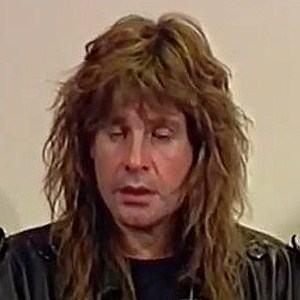 Ozzy Osbourne is one of the most influential metal performers of all time, but in late 1979 the formerBlack Sabbath singer was unemployed, broke and attempting an unlikely solo career.
Ozzy Osbourne is one of the most influential metal performers of all time, but in late 1979 the formerBlack Sabbath singer was unemployed, broke and attempting an unlikely solo career.
During auditions for his new band, in walked a then-little-known guitarist named Randy Rhoads. Not a Sabbath fan, Rhoads hadn’t even wanted to audition, doing so only at the insistence of a friend.
Rhoads had only played a few warmup exercises when an astonished (and highly intoxicated) Osbourne promptly gave him the job before reportedly passing out. It’s hard to imagine Osbourne’s stratospheric solo career happening if he missed out on Rhoads.
JETHRO TULL BEAT METALLICA FOR BEST HARD ROCK/HEAVY METAL GRAMMY – MOMENTS THAT NEARLY DESTROYED ROCK
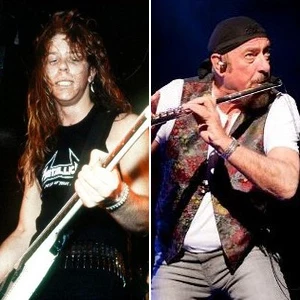 In 1988, metal was poised to finally make the leap from the shadowy fringes of music into the critical mainstream when Metallica were nominated for a Grammy for Best Hard Rock/Heavy Metal Performance. But in one of the most incredible upsets in Grammy history, the award instead went to British prog-rockers Jethro Tull.
In 1988, metal was poised to finally make the leap from the shadowy fringes of music into the critical mainstream when Metallica were nominated for a Grammy for Best Hard Rock/Heavy Metal Performance. But in one of the most incredible upsets in Grammy history, the award instead went to British prog-rockers Jethro Tull.
Fortunately, the incident didn’t permanently damage Metallica, who turned in a slightly more mainstream direction with their next album and have gone on to become the most successful rock act of their generation. But still — what if James Hetfield had taken up the flute in an attempt to chase Tull’ critical success? Where would we all be then, huh?
JOEY RAMONE DITCHES THE KIT – MOMENTS THAT NEARLY DESTROYED ROCK
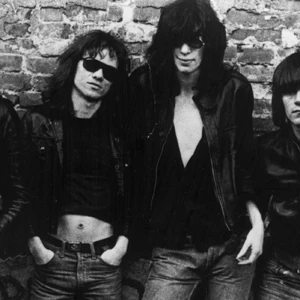
As true Ramones fans will tell you, Joey Ramone wasn’t always the singer of the iconic NYC band. The gangly fellow born Jeffry Hyman started out on drums, holding down rudimentary beats while Douglas Colvin, soon to be known as Dee Dee Ramones, handled vocals.
This lineup might have stuck, but Dee Dee couldn’t play bass and sing at the same time. Enter Thomas Erdelyi, a friend of the group who had been slated to take over as manager. Erdelyi, subsequently known as drummer Tommy Ramone, convinced Joey to step up to the mic. We’re glad he did. Without Joey’s bleat, the Ramones don’t break, punk doesn’t explode and alt-rock never happens in America.
THE SMITHS MULL MARR-LESS EXISTENCE – MOMENTS THAT NEARLY DESTROYED ROCK
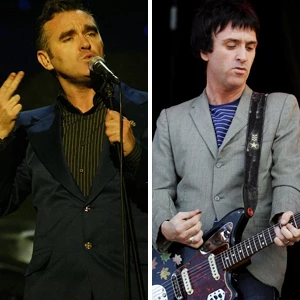
After guitarist Johnny Marr left the Smiths in 1986, remaining members Andy Rourke, Mike Joyce and Morrissey attempted to soldier on without him. They recruited Ivor Perry, formerly of the band Easterhouse, to take his place and set about recording a follow-up to 1987′s ‘Strangeways, Here We Come.’ Perry is a fine player, and the four might have come away with a decent record, but it wouldn’t have been a Smiths album. The group’s sound depended on both Moz’s overwrought lyrics and vocals and Marr’s singular playing, which was about more than mere jangle. Eventually, the sessions broke down, and Morrissey “ran screaming from the room,” according to Perry. After that, the band split, Morrissey went solo and the world was spared something it’ll never endure: a Smiths album that’s less than brilliant.
DAVE GROHL PONDERS NIRVANA – MOMENTS THAT NEARLY DESTROYED ROCK
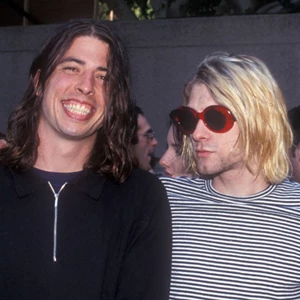
The first sound you hear on Nirvana‘s ‘Smells Like Teen Spirit’ is Kurt Cobain’s guitar, but it’s Dave Grohl’s introductory drum fill that really gets things going. That percussive blast sparked the ’90s alt-rock revolution, but if it hadn’t have been for Grohl’s wise mother, the war might not have had its opening shot. When Grohl met Cobain and bassist Krist Novaselic, he was on tour with his buddies in the D.C. hardcore band Scream. Kurt and Krist asked him to join their group, a Seattle outfit of some renown, but he was torn, so he asked his mom for advice. “She told me there are times in life when you have to do what’s best for yourself,” Grohl told the Guardian. Would ‘Nevermind’ have been as good without Grohl? Would Nivana have blown up? Would Winger still be on the charts? Thanks to Mama Grohl, we never had to find out.
THE CLASH CONSIDER ROCK HALL REUNION – MOMENTS THAT NEARLY DESTROYED ROCK
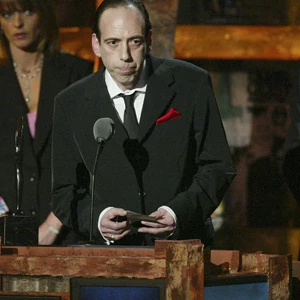
Let us start by saying we’re in no way glad Joe Strummer died in 2002. When the Clash legend succumbed to a previously undiagnosed heart condition, rock lost one of its most passionate, least compromising figures. That said, had Joe made it to the 2003 Rock and Roll Hall of of Fame induction ceremony, he might have reunited honorees the Clash for the occasion. He’d convinced guitarist Mick Jones and drummer Topper Headon to join in, leaving bassist Paul Simonon as the lone holdout. Simonon had it right: The Clash only stood to tarnish their legacy, and their story didn’t need this, the Rock Hall, as its final chapter. When Strummer and Jones joined forces one last time in November 2002 at benefit for striking firefighters, it was a more fitting coda for the Only Band That Matters.
BLOOD, SWEAT & CHILTON? – MOMENTS THAT NEARLY DESTROYED ROCK
 In 1970, Alex Chilton was a man without a band. The 19-year-old Memphis rocker had tasted success as a member of the Box Tops, scoring a No. 1 hit with ‘The Letter,’ but the group had gone kaput, leaving him to record demos and produce local artists. Around this time, jazz-rock heroes Blood, Sweat & Tears needed to fill the void left by their recently departed vocalist, so they made Chilton an offer. Turns out it was one he could — and did — refuse. The following year, Chilton met Chris Bell and formed Big Star, a wildly influential power-pop band whose list of admirers reads like a Who’s Who of alt- and indie rock. Chilton died in 2010, but he’ll live on forever in the the Replacements tune ‘Alex Chilton,’ which pays tribute to the indie icon.
In 1970, Alex Chilton was a man without a band. The 19-year-old Memphis rocker had tasted success as a member of the Box Tops, scoring a No. 1 hit with ‘The Letter,’ but the group had gone kaput, leaving him to record demos and produce local artists. Around this time, jazz-rock heroes Blood, Sweat & Tears needed to fill the void left by their recently departed vocalist, so they made Chilton an offer. Turns out it was one he could — and did — refuse. The following year, Chilton met Chris Bell and formed Big Star, a wildly influential power-pop band whose list of admirers reads like a Who’s Who of alt- and indie rock. Chilton died in 2010, but he’ll live on forever in the the Replacements tune ‘Alex Chilton,’ which pays tribute to the indie icon.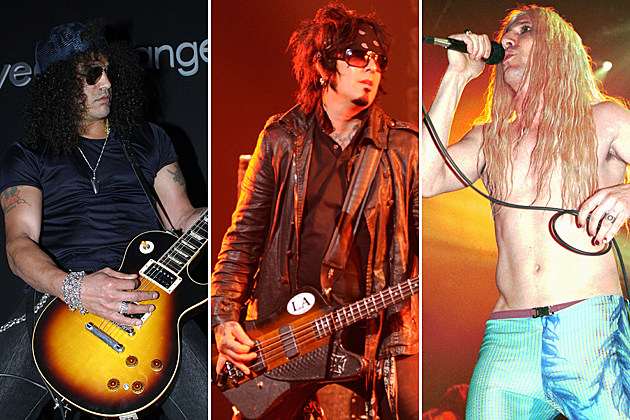
No comments:
Post a Comment